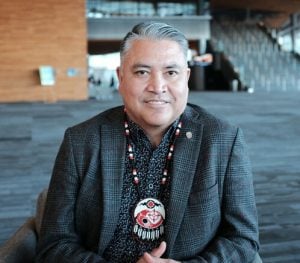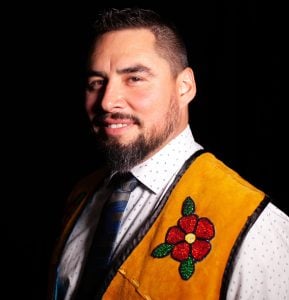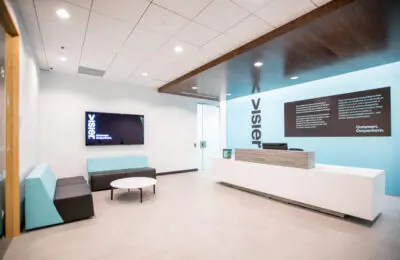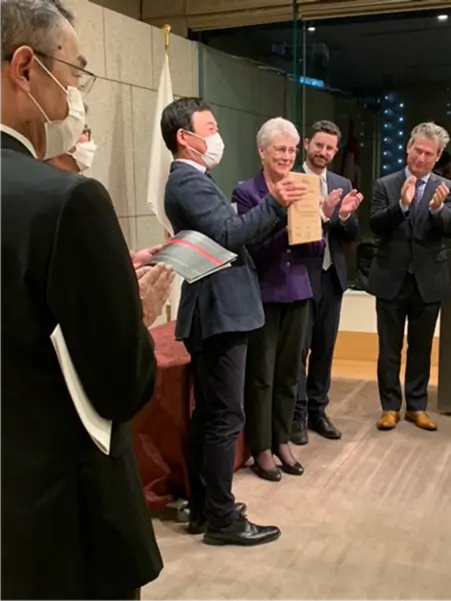Celebrating Indigenous Economies in B.C.
The Province of British Columbia (B.C.) is committed to reconciliation and lasting partnerships with Indigenous Peoples, reflecting their interests and needs in economic development, business and export opportunities. By partnering with First Nations and community organizations, B.C. offers various programs and services to boost economic development and business opportunities for Indigenous communities.
B.C. is home to the second largest number of Indigenous entrepreneurs in Canada, with over 2,000 Indigenous-owned businesses across the province. Many of these businesses, such as the 2023 BC Export Awards Indigenous winner Satya Organic, have successfully expanded beyond B.C. through exports.
Leading companies investing in B.C. have implemented successful business models based on collaborative, trusting relationships with First Nations. As a result, these partnerships have led to greater investment and business certainty.
In 2023, the Canadian Indigenous Business Accelerator was launched to provide Indigenous-owned businesses with unique support to access U.S. markets, leveraging the Canada-United States-Mexico Agreement (CUSMA) which took effect in June 2020. The program has already seen successes, such as the female-led and Indigenous-owned B.C. business of Nuez Acres. The company sources raw materials from Mexico and processes them in British Columbia.
As part of the StrongerBC Economic Plan, the B.C. government provided $1.2 million to the British Columbia Assembly of First Nations to launch the First Nations Centre of Excellence for Economic Development (FNCOE). This independent, First Nations-led initiative will be an important catalyst for First Nations economic activity, providing tools, resources and capacity to help First Nations achieve their unique goals and priorities.
Advancing Indigenous-led Economic Development
First Nations and businesses across B.C. have formed successful partnerships. In the following video, First Nations and business leaders share insights on how these partnerships develop, focusing on the keys to success:
- Communication,
- Consultation, and
- Consensus-building.
Watch the video below to learn more.
Q&A with Regional Chief Terry Teegee and Deputy Chief Harlan Schilling

Below is an extended transcription of the interviews conducted for the StrongerBC video series, which took place in 2022. In the interview Regional Chief Terry Teegee and Deputy Chief Harlan Schilling share their perspectives on economic resiliency and how to build a foundation of success.
Terry Teegee is the elected Regional Chief of the British Columbia Assembly of First Nations (BCAFN). Teegee’s ancestry is Dakelh, Gitxsan and Sekani descent and is a member of Takla Nation. The BCAFN is a progressive and innovative group representing and advocating for 204 First Nations in B.C., working towards self-sufficiency and vibrancy.

Harlan Schilling is the Deputy Chief of the Daylu Dena Council in Lower Post, B.C., has served on the BCAFN Board of Directors and is appointed Chief Executive Officer of the First Nations Centre of Excellence for Economic Development (FNCOE). Schilling previously served in the Canadian Armed Forces as a combat engineer for seven years.
How can First Nations and indigenous peoples be a part in accelerating economic growth?
Teegee: Indigenous peoples must be included in every aspect of economic development in British Columbia. In the past, we’ve been excluded from these discussions. As we move forward and implement the United Nations Declaration on the Rights of Indigenous Peoples into law, addressing economic issues and poverty among Indigenous communities becomes unavoidable. It’s important that we are part of the conversations shaping British Columbia’s economy to ensure it benefits our people and brings positive changes for our future generations.
Schilling: Including Indigenous peoples in B.C.’s economic growth is vital. The province needs to work with First Nations, who are the fastest-growing population in B.C. and many parts of the world. It makes perfect sense for First Nations to be partners, as they are eager and willing to contribute to this collaboration.
Why is it important to support indigenous entrepreneurs, especially indigenous female entrepreneurs?
Teegee: Entrepreneurship is so important for Indigenous peoples in British Columbia because it provides opportunities for innovation and independence. It allows individuals to be self-reliant, not dependent on their communities or a chief in council. Entrepreneurship creates spaces for Indigenous peoples to thrive and innovate, which is why it is so important.
One of the biggest drivers in Indigenous economies is Indigenous female entrepreneurs. Therefore, it’s essential to provide opportunities and resources to develop entrepreneurship. Indigenous female entrepreneurs represent an untapped part of the economy, bringing a lot of innovation and creativity. This emerging part of the economy is exciting because these women are realizing their potential in entrepreneurship and taking their rightful place in the B.C. economy.
Schilling: I’m proud to be part of the Kaska Nation, where many young Indigenous women are showcasing their art and talent globally. They are preserving traditional values while gaining international recognition. The impact of COVID-19 has strengthened our connection to traditional lands and empowered Indigenous women. They are thriving in various sectors, including hospitality, clothing, and leadership. For example, the Yukon has a female regional chief, Kluane Adamek, who is an incredible leader. In my own First Nation, councillor Catherine Porter ensures that traditional values are upheld and supports our community’s leaders. These female entrepreneurs are driving our workforce and community forward.
Why is inclusive growth important for lasting and meaningful reconciliation with indigenous peoples?
Teegee: To me, inclusive growth means involving all Indigenous peoples in the growth of B.C.’s economy. Whether it’s contributing to natural resource development, which is a major part of B.C.’s economy, or participating in new, emerging industries, we need to be part of these conversations. We don’t want to be left behind.
British Columbia is one of the few places in the world that has implemented the United Nations Declaration on the Rights of Indigenous Peoples, a key outcome of the Truth and Reconciliation Commission. However, achieving true reconciliation remains challenging, given the lasting impacts of colonization on Indigenous peoples. For a stronger B.C., economic reconciliation is essential. Including Indigenous peoples in the economy is crucial for asserting our sovereignty and self-determination.
Schilling: We’re seeing a rebound and a renewed sense of pride in our community. Entrepreneurship and provincial support in this partnership are lifting spirits, reminding us of our resilience and identity. These initiatives are crucial for fostering pride and empowerment at a personal level. Uplifting individuals will also make a nation thrive. With my community so far up north, we cannot be successful without the province’s partnership. We are self-sufficient and self-reliant people, so ensuring these resources are readily available for all of us strengthens British Columbia.
Learn more about economic opportunities in B.C.
Trade and Invest B.C. works with international enterprises to help them build strong connections to the resources, skills and businesses that make B.C. the natural place to work, live and invest.
Connect with Trade and Invest BC or follow us on LinkedIn and X to learn more about opportunities in British Columbia.
Related News
We Can Help
Trade and Invest BC helps facilitate foreign direct investment and has Trade and Investment Representatives in markets around the world. Contact the representative nearest you for support in investing in British Columbia.





